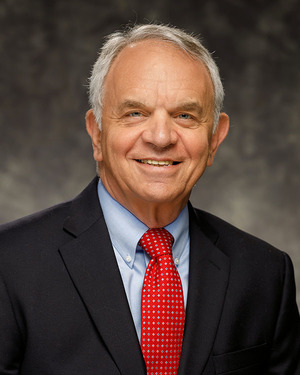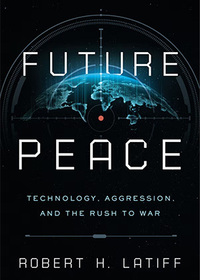
- George Mason University
- U.S. Air Force Major General and Research Professor
- Residential Fellow (2019-2020)
- “Future Peace: Resisting War in a Networked World”
Robert Latiff is a former U.S. Air Force Major General, now a private consultant to government, industry, and universities on advanced technologies. Professor Latiff is an adjunct professor at The Reilly Center for Science, Technology and Values at the University of Notre Dame where he teaches on ethics and weapons technologies. He holds a part-time appointment as a research professor in the School of Engineering at George Mason University where his interests are in ethics and technologies supporting the U.S. intelligence community. His current interests are the implications of artificial intelligence and autonomy on military command and the potential for inadvertent war. His interests extend to the means and methods by which concerned citizens and public officials can influence decisions to resort to armed conflict in the face of instant communications and the many forces pushing for the use of the military.
Professor Latiff is the author of Future War: Preparing for the New Global Battlefield (Knopf, 2017) and “Ethical Issues in Defense Systems Acquisition” in the Routledge Handbook of Military Ethics (2015). He has published articles in Expositions: Interdisciplinary Studies in the Humanities (2018) and The Disarmament Times (2014), as well as editorials in The New York Times and The Wall Street Journal.
Professor Latiff is a member of the Intelligence Community Studies Board and the Committee on International Security and Arms Control of the National Academies of Science, Engineering, and Medicine.
Publications
-
Future Peace: Technology, Aggression, and the Rush to War
Notre Dame Press, 2022

Today’s militaries are increasingly reliant on highly networked autonomous systems, artificial intelligence, and advanced weapons that were previously the domain of science fiction writers. In a world where these complex technologies clash with escalating international tensions, what can we do to decrease the chances of war? In Future Peace, the eagerly awaited sequel to Future War, Robert H. Latiff questions our overreliance on technology and examines the pressure-cooker scenario created by the growing animosity between the United States and its adversaries, our globally deployed and thinly stretched military, the capacity for advanced technology to catalyze violence, and the American public’s lack of familiarity with these topics.
Future Peace describes the many provocations to violence and how technologies are abetting those urges, and it explores what can be done to mitigate not only dangerous human behaviors but also dangerous technical behaviors. Latiff concludes that peace is possible but will require intense, cooperative efforts on the part of technologists, military leaders, diplomats, politicians, and citizens. Future Peace amplifies some well-known ideas about how to address the issues, and provides far-, mid-, and short-term recommendations for actions that are necessary to reverse the apparent headlong rush into conflict. This compelling and timely book will captivate general readers, students, and scholars of global affairs, international security, arms control, and military ethics.